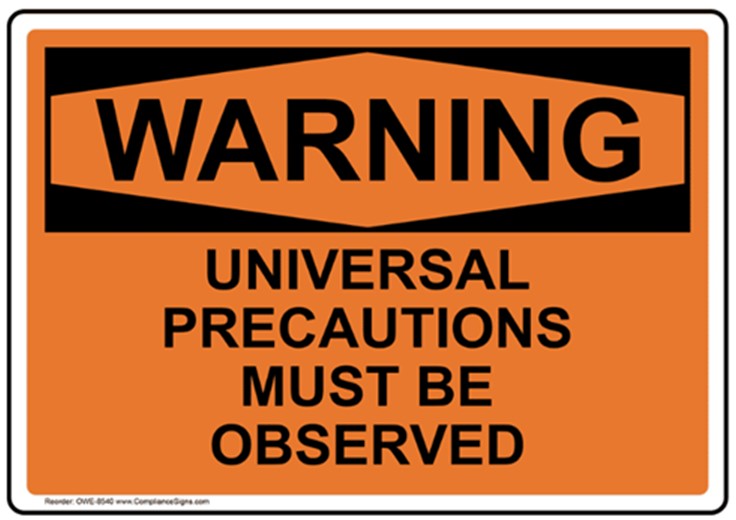UNIVERSAL PRECAUTIONS: COVID-19
An Old Approach to a New Disease”
Many organizations have developed pandemic response plans based on recommendations from the Center for Disease Control (CDC) and the Occupational Safety and Health Administration (OSHA). Pandemic response plans include many prevention strategies, but perhaps the most important is the concept of universal precautions.

This concept was introduced by the CDC in 1985 in response to the human immunodeficiency virus (HIV), a bloodborne disease. In addition, OSHA established its Bloodborne Pathogen Standard 29 CFR 1910.1030 which requires employees to observe universal precautions to prevent contact with blood or other infectious material. The standard requires that when differentiation between body fluid types is difficult or impossible, all body fluids should be considered infectious materials. This consideration also requires the use of gloves, masks, or protective clothing as well as the use of engineering and administrative controls.
Although COVID-19 is not considered a bloodborne disease, the concept of universal precautions applies. COVID-19 can be spread from person to person through droplets in the air resulting from an infected person coughing, sneezing, and talking. Several studies have suggested that as many as one in four people with COVID-19 are asymptomatic. A disease is considered asymptomatic if a patient is a carrier for a disease or infection but experience no symptoms. In other words, just because someone feels healthy and displays no symptoms it does not mean that they are not a carrier of the disease.
Implementing universal precautions in the workplace requires employees to assume that other persons they encounter may have COVID-19 and that surfaces that they touch might be contaminated with the virus. This underscores the importance of physical distancing, regular cleaning and disinfecting, and routine handwashing.
COVID-19 has changed the workplace for the foreseeable future. As the country slowly opens, we must accept the fact that COVID-19 still exists and can negatively impact businesses and our personal lives. Consider revisiting the concept of universal precautions as it relates to COVID-19 and ensure that employees understand the risks and necessary precautions.
Joe Mlynek is a partner and subject matter expert at Safety Made Simple, Inc. He has over 25 years of experience in safety at the corporate level and as a consultant. He is a Certified Safety Professional (CSP) and Occupational Safety and Health Technician (OHST). Joe can be reached at joe@safetymadesimple.com
